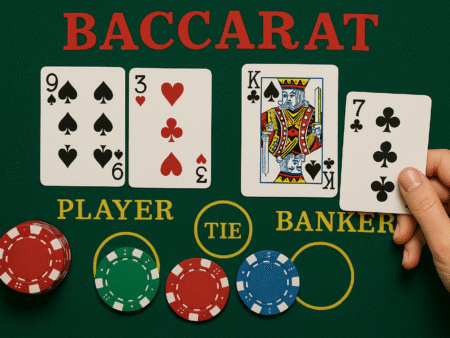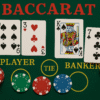Poker is far more than just a card game — it’s a test of skill, strategy, psychology, and discipline. From smoke-filled backrooms to glamorous casino floors and the fast-paced world of online poker, millions of players around the world are drawn to the thrill of competing in this classic game. But whether you’re a complete beginner or someone looking to sharpen your edge, there’s one essential aspect that separates winning players from the rest: a deep understanding of poker hands.
What is Poker?
Poker is a family of card games in which players wager over the strength of their cards — called poker hands — according to a specific set of rules. The game combines elements of gambling, strategy, and psychology, and has evolved into countless variants over centuries of play. The core objective in virtually all forms of poker is simple: win the pot, which is the collection of bets made during a hand, either by having the best hand at showdown or by successfully bluffing your opponents into folding.

Though the rules can vary, all poker games involve betting rounds, hand rankings, and a blend of skill and chance. The beauty of poker lies in its balance of luck and decision-making, which allows for consistent long-term success by skilled players despite the unpredictable nature of short-term outcomes.
Overview of Different Poker Formats
Poker can be played in several formats, each offering a different pace, strategy, and style of play. Understanding the differences will help you find the format that best suits your preferences and goals.
Cash Games
In cash games, chips represent real money, and players can join or leave the game at any time. The blinds stay the same throughout the session, and the game continues indefinitely. Cash games reward deep understanding of odds, table dynamics, and patience.
Tournaments
In poker tournaments, players pay a fixed buy-in and receive an equal number of chips. The goal is to outlast all other players and win a portion of the prize pool, which grows based on the number of entries. As blinds increase over time, the pace accelerates and strategy shifts toward survival and aggression.
Online vs. Live Poker
Online poker brings the game to your fingertips, allowing you to play multiple tables simultaneously, track statistics, and join games at any time of day. It’s faster and more data-driven, but lacks the physical reads of live play. Live poker, on the other hand, offers face-to-face interaction, slower gameplay, and a unique psychological edge based on observing opponents’ behavior.
Why Poker is a Skill-Based Game with Elements of Chance
Poker is often misunderstood as a game of pure luck, but in reality, it’s a complex competition where skill dominates over time. While chance plays a role in the short term — such as the randomness of dealt cards — experienced players consistently outperform beginners by:
- Making better decisions based on math and probabilities
- Reading opponents and adjusting strategies
- Managing bankrolls and emotions effectively
- Knowing when to fold, call, or raise
- Applying pressure through calculated bluffs
This unique combination makes poker a game of skill influenced by chance, not the other way around.
Popular Variants of Poker
Over the years, countless versions of poker have emerged, each with its own rules, pace, and strategic depth. Below are the most popular and widely played poker variants that every aspiring player should know.
Texas Hold’em
Basic Rules and Gameplay
Texas Hold’em is the most popular poker variant in the world, especially in tournament settings like the World Series of Poker (WSOP). Each player is dealt two private cards (hole cards), and five community cards are placed face-up on the table in three stages: the flop (three cards), the turn (one card), and the river (one card). Players use any combination of their hole cards and the community cards to make the best possible five-card hand.
The game involves four betting rounds — pre-flop, flop, turn, and river — and emphasizes position, hand selection, and bet sizing.
Why It’s the Most Popular Variant
Texas Hold’em strikes the perfect balance between accessibility and depth. It’s easy to learn but hard to master, making it appealing to both casual players and seasoned professionals. Its fast pace, widespread availability, and televised appeal have helped it dominate the global poker scene.
Omaha
Difference from Hold’em
Omaha is structurally similar to Texas Hold’em, but each player is dealt four hole cards instead of two. To make a valid hand, players must use exactly two of their hole cards combined with exactly three community cards. This rule increases the number of potential combinations and generally leads to stronger hands.
Strategy Differences
Due to the larger number of hole cards, hand values tend to be higher in Omaha. Drawing hands and made hands are more frequent, and post-flop play becomes more complex. Bluffing is less effective than in Hold’em, and pot control becomes a key strategy. Omaha is a game of draws, coordination, and patience.
Seven Card Stud
How It’s Played
Before Texas Hold’em took center stage, Seven Card Stud was the most popular poker game in America. In this variant, players are dealt seven cards individually — three face-down and four face-up — over five streets of betting. Unlike Hold’em and Omaha, there are no community cards.
The objective is the same: form the best five-card hand using any five of the seven dealt cards.
Historical Significance
Seven Card Stud was the game of choice in American poker rooms for much of the 20th century. It’s a slower and more methodical game, often favored by older or more traditional players. Despite its decline in popularity, it remains a key variant in mixed games and high-stakes formats.
Five Card Draw
Classic Version
This is the version many people learned around the kitchen table. Each player is dealt five private cards. After an initial round of betting, players may discard up to three cards (four if they keep an ace) and draw replacements from the deck. A final round of betting follows before the showdown.
Simple Rules, Good for Beginners
Five Card Draw is straightforward and easy to learn, making it ideal for casual players and beginners. It introduces the core concepts of betting, bluffing, and hand strength without the complexity of community cards or multiple betting rounds.
Other Variants
Razz, Pineapple, HORSE
- Razz is a lowball version of Seven Card Stud where the lowest hand wins. Straights and flushes don’t count against you, and aces are always low.
- Pineapple is similar to Hold’em but with three hole cards; players discard one at a specific stage.
- HORSE is a mixed-game format that rotates through five poker variants: Hold’em, Omaha Hi-Lo, Razz, Seven Card Stud, and Eight-or-Better Stud Hi-Lo. It tests a player’s versatility across multiple game types.
Why Variety Matters
Learning different poker variants expands your understanding of poker theory, hones your adaptability, and gives you a competitive edge. Each variant teaches different aspects of the game — from bluffing and reading in Hold’em to patience and memory in Stud.
How to Play Poker: Rules and Gameplay
Understanding how to play poker begins with grasping the game’s structure, terminology, and betting mechanics. Regardless of the variant, the fundamental rules remain similar in most versions of poker, especially in Texas Hold’em and Omaha.
Overview of Poker Hand Rankings
At the heart of poker lies the battle between different combinations of cards, known as poker hands. A standard poker hand consists of five cards, and the value of a hand determines its strength relative to others at the table. The better your hand, the greater your chance of winning the pot — unless your opponent outplays or bluffs you.
Game Flow: Betting Rounds, Positions, Blinds
The Deal
Each hand begins with players being dealt their starting cards — two in Hold’em, four in Omaha, or five in Draw poker.
Blinds and Antes
To generate action, most poker games use blinds (forced bets by the two players left of the dealer) or antes (a small forced bet paid by all players). These ensure there’s always something to play for.
Betting Rounds
A typical hand features multiple betting rounds, each offering opportunities to fold, call, raise, or bluff:
- Pre-Flop – after receiving hole cards
- Flop – three community cards are dealt
- Turn – fourth community card
- River – fifth and final community card
Positions
Player position is crucial. The dealer button rotates clockwise each hand, shifting who acts first. Acting later in the hand (being “in position”) provides a strategic advantage because you can respond to other players’ actions with more information.
Basic Terminology
- Call: Match the current bet.
- Raise: Increase the bet.
- Fold: Discard your hand and forfeit the pot.
- Check: Pass the action without betting.
- Pot: The total of all bets made in a hand.
- All-in: Wager all your remaining chips.
Examples of Hands and Betting Sequences
Imagine you’re dealt Ace-King (AK) in Texas Hold’em:
- You raise pre-flop from middle position.
- One player calls from the button.
- The flop comes: King-7-2.
- You make a continuation bet; your opponent raises.
- You suspect a bluff and re-raise — they fold.
This sequence shows how betting strategy, hand strength, and positional awareness interact in real time.
Poker Hand Rankings
Having a solid understanding of how poker hands are ranked is non-negotiable. It’s the bedrock of decision-making at every level of the game. Here’s a breakdown of hands from strongest to weakest:
Royal Flush to High Card: Detailed Breakdown
- Royal Flush – A, K, Q, J, 10 all of the same suit
- Straight Flush – Five consecutive cards of the same suit (e.g., 8–9–10–J–Q of hearts)
- Four of a Kind – Four cards of the same rank (e.g., 9–9–9–9–3)
- Full House – Three of a kind plus a pair (e.g., Q–Q–Q–7–7)
- Flush – Five non-consecutive cards of the same suit
- Straight – Five consecutive cards of mixed suits
- Three of a Kind – Three cards of the same rank
- Two Pair – Two sets of pairs (e.g., 8–8 and 5–5)
- One Pair – A single pair (e.g., 6–6)
- High Card – No combination; the highest card plays (e.g., Ace-high)
Visual Chart: Poker Hands Ranked
| Rank | Hand | Example |
|---|---|---|
| 1 | Royal Flush | A♠ K♠ Q♠ J♠ 10♠ |
| 2 | Straight Flush | 7♥ 8♥ 9♥ 10♥ J♥ |
| 3 | Four of a Kind | Q♦ Q♣ Q♠ Q♥ 3♠ |
| 4 | Full House | 10♣ 10♦ 10♠ 6♥ 6♠ |
| 5 | Flush | 2♠ 6♠ 9♠ J♠ K♠ |
| 6 | Straight | 5♦ 6♠ 7♥ 8♦ 9♣ |
| 7 | Three of a Kind | 4♦ 4♣ 4♠ 9♥ J♣ |
| 8 | Two Pair | 7♠ 7♦ 3♣ 3♠ Q♥ |
| 9 | One Pair | 5♠ 5♣ K♦ 9♠ 2♦ |
| 10 | High Card | A♣ 10♦ 8♠ 6♣ 3♥ |
Importance of Knowing Hand Strength
Misjudging the value of your hand is one of the most common beginner mistakes. For example, a flush beats a straight, and three of a kind beats two pair. Knowing this hierarchy without hesitation allows you to make more informed decisions and capitalize on opportunities to bet for value — or fold when you’re likely beaten.
Essential Poker Strategy
Once you’ve learned the rules and hand rankings, strategy becomes the key to winning. Good strategy helps you make the right moves consistently, exploit opponents’ mistakes, and minimize your own losses.
Starting Hand Selection
What to Play and When Based on Position
Not all hands are worth playing. Premium hands like A-A, K-K, Q-Q, and A-K should usually be played from any position, while speculative hands like suited connectors (e.g., 7♠ 8♠) are best played from later positions.
Importance of Folding Bad Hands
One of the strongest tools in poker is the fold button. Novice players lose money by playing too many hands. Folding weak cards from early position and resisting the urge to chase weak draws is a hallmark of disciplined play.
Position and Table Awareness
Why Position Matters
Acting last gives you an informational advantage. You get to see how opponents act before you decide — whether to call, raise, or fold. Being “in position” allows for more strategic control.
Adjusting Based on Opponents’ Behavior
Tight players (those who play few hands) are more likely to have strong holdings. Loose or aggressive players can be bluffed or trapped. Observe patterns and adjust your approach accordingly.
Bet Sizing and Pot Odds
How to Size Your Bets Appropriately
Smart bet sizing builds bigger pots when you’re ahead and minimizes losses when you’re behind. As a rule, value bets should be big enough to get called, while bluffs should apply pressure without overcommitting.
Understanding Value Betting and Bluffing
Value betting means betting to get paid by worse hands. Bluffing means betting to force better hands to fold. Both are vital tools — knowing when to use each is key to profitable poker.
Reading Opponents
Tells in Live Poker
In live games, physical tells — like shaking hands, heavy breathing, or glancing at chips — can give clues about hand strength. Experienced players also use reverse tells to mislead.
Betting Patterns in Online Play
Without physical tells, online poker players rely on timing, bet sizing, and frequency of actions to read opponents. Tracking software can also help spot habits over time.
Bluffing
When and How to Bluff Effectively
Bluff when your story makes sense and the board favors your range. For instance, bluffing a missed flush draw after betting the flop and turn is often more believable than a random shove.
Semi-Bluff vs. Pure Bluff
- Semi-bluff: Betting with a drawing hand (e.g., flush or straight draw) that could improve.
- Pure bluff: Betting with little to no chance of improvement, relying solely on fold equity.
Bankroll Management
Avoiding Tilt and Playing Within Limits
Bankroll management keeps you in the game. Avoid playing stakes that make you emotionally or financially uncomfortable. Losing streaks happen, so always play with money you can afford to lose.
Tracking Your Performance
Keep records of wins, losses, and notes on your play. Over time, you’ll see patterns and areas for improvement — an essential habit for serious players.
Playing Poker Online
With the advent of digital technology, online poker has exploded in popularity, offering players the chance to compete from anywhere in the world. Whether you’re a casual player or a grinder chasing profits, the online environment brings unique opportunities and challenges.
How Online Poker Works
Online poker platforms use random number generators (RNGs) to ensure fair card distribution. Major sites are licensed and regulated by gaming commissions to maintain transparency and integrity. Secure platforms also offer encryption and identity verification for added player protection.
Advantages of Playing Online
- Convenience: Play any time, day or night.
- Game Selection: Access to various formats and stakes, from micro to high roller.
- Volume: Online players can see more hands per hour than live players.
- Bonuses & Rakeback: Online platforms offer deposit bonuses, freerolls, and loyalty rewards.
Tips for Multi-Tabling and Using Software Tools
- Start with 2–4 tables to avoid overwhelming yourself.
- Use tools like PokerTracker or Hold’em Manager to track stats and identify leaks.
- Table layout managers and hotkeys can streamline actions and reduce errors.
Poker Tournaments vs. Cash Games
Poker comes in two main competitive formats, each with a distinct structure, strategy, and appeal.
Key Differences in Structure and Strategy
| Feature | Tournaments | Cash Games |
|---|---|---|
| Chips | Fixed amount, no rebuy (except in some formats) | Buy-in anytime with real money |
| Blinds | Increase over time | Stay constant |
| Duration | Set time or until one player remains | Flexible; join and leave at will |
| Strategy | Stack preservation, ICM matters | Focus on +EV decisions at all times |
Pros and Cons of Each Format
Tournaments Pros:
- Big prize pools with small buy-ins
- Prestige of winning an event
Tournaments Cons:
- Time commitment
- High variance
Cash Games Pros:
- Consistent hourly rate
- Ability to leave anytime
Cash Games Cons:
- Less dramatic wins
- Harder to build a bankroll quickly
Famous Tournaments
- World Series of Poker (WSOP) – The most prestigious live poker series.
- European Poker Tour (EPT) – Known for its international flair and massive events.
- World Poker Tour (WPT) – Televised tournaments with deep fields and big prizes.
Common Mistakes to Avoid
Even experienced players make costly mistakes. Avoiding these can significantly boost your win rate.
Playing Too Many Hands
New players often play any two cards out of boredom or curiosity. This habit quickly drains your bankroll. Stick to a disciplined hand selection strategy.
Ignoring Position
Failing to consider position leads to poor decision-making. Acting early with weak hands exposes you to costly raises.
Chasing Losses
Poker is a long-term game. Trying to “win it back” after losses leads to reckless decisions and tilt.
Bluffing Too Often
Bluffing is a tool, not a crutch. If you bluff too much, observant opponents will call you down light.
Lack of Discipline and Tilt Control
Emotional decisions destroy profitability. Learn to walk away when frustrated and return with a clear mind.
Advanced Poker Concepts
To move from solid to elite play, mastering advanced theories is essential.
ICM (Independent Chip Model)
Used in tournaments to estimate the real-dollar value of your chip stack. Helps in making +EV decisions near the bubble or final table.
GTO vs. Exploitative Play
- GTO (Game Theory Optimal): A balanced, unexploitable strategy.
- Exploitative Play: Adjusting to opponents’ mistakes. Best when playing against weak or predictable players.
Top players blend both depending on the game dynamic.
Table Image and Metagame
Your table image (tight, aggressive, wild) affects how others play against you. Understanding how others perceive you helps you counter their assumptions.
Using Poker Solvers and Training Tools
Software like PioSOLVER or GTO+ allows you to study theoretically perfect play. Use them to analyze tough spots and refine your strategy.
Poker as a Career
Turning poker into a profession is possible, but it demands far more than just knowing the rules.
What It Takes to Go Pro
- Technical skill
- Emotional control
- Financial discipline
- Constant study and adaptation
Lifestyle, Risks, and Rewards
Pros enjoy freedom and high earning potential. But the road is tough: downswings, variance, and unstable income are constant threats.
Realistic Expectations and Career Paths
Most pros focus on a niche: tournaments, online cash, or live games. Many diversify with content creation, coaching, or staking others to supplement income.
The Psychology of Poker
Success in poker is often mental, not just mathematical.
Emotional Control and Mental Toughness
Staying calm during downswings, keeping focus during long sessions, and avoiding “tilt” are essential skills.
Reading Emotional Cues
In live games, physical behavior offers insight into an opponent’s strength or nervousness. Online, timing and betting patterns offer similar clues.
The Role of Variance and Long-Term Thinking
Bad beats happen. Top players accept short-term losses and focus on making decisions that are profitable over thousands of hands.
Legal and Ethical Aspects
Understanding the legal landscape is crucial for playing safely and responsibly.
Poker Legality in Different Regions
Laws vary widely:
- In the U.S., some states allow regulated online poker (e.g., New Jersey, Nevada).
- In the EU, regulation is often country-specific.
- Other regions operate in legal gray areas.
Always check local regulations before playing.
Responsible Gaming and Ethics
Play within your means. Don’t chase losses or let poker interfere with personal responsibilities. Reputable sites promote responsible gaming and offer self-exclusion tools.
Legal vs. Underground Games
Legal games offer player protections, fair play, and regulated banking. Underground games may lack oversight and carry safety and legal risks.
Conclusion
Poker’s enduring popularity stems from its perfect balance of skill, psychology, and chance. Whether you’re playing in a home game or grinding online poker, the road to mastery is both challenging and deeply rewarding.
Learning the rules and understanding poker hands is just the beginning. Success requires discipline, study, and mental strength. But for those who commit to improving, the game offers endless depth and lifelong learning.
Keep practicing, stay patient, and always play smart. The next hand could be the one that turns the game around.






